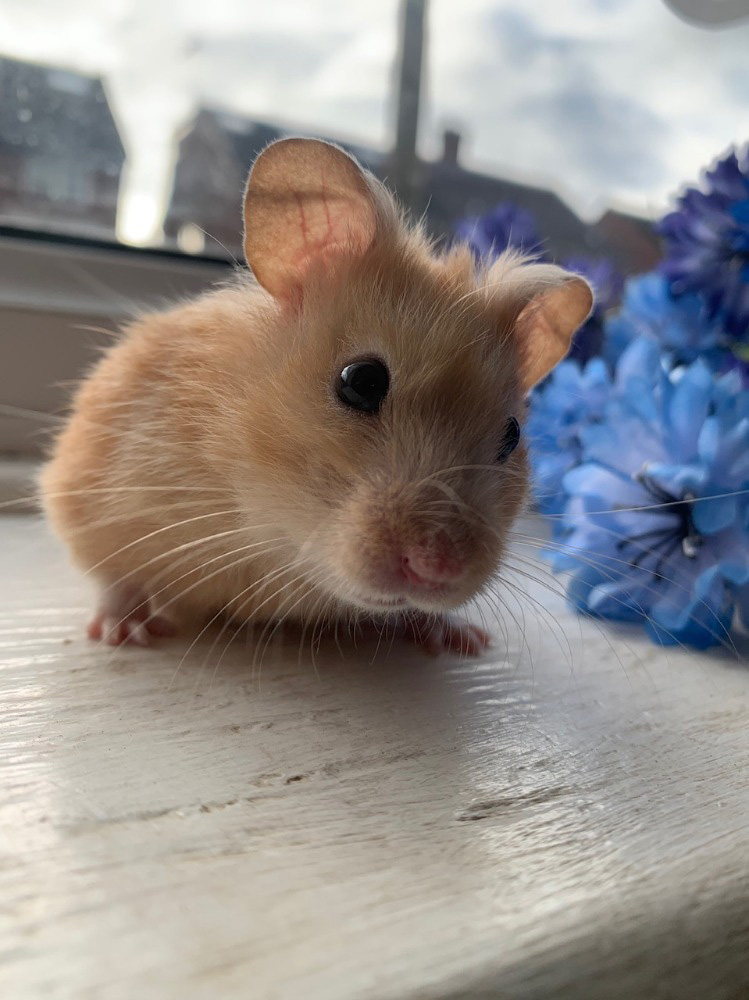Hamster Breed Lifespans: A Comprehensive Guide
Understanding the lifespans of various hamster breeds is crucial for responsible pet ownership and ensuring optimal care. In this article, we will discuss the average lifespans of the most common hamster breeds, the factors that influence their longevity, and practical tips on ensuring your furry friend lives a long, happy life.
Common Hamster Breeds and Their Lifespans
Different breeds of hamsters exhibit varying average lifespans, typically ranging from 2 to 4 years. Knowing the specific lifespan of your hamster breed can help you prepare for its care requirements. Below, we explore the four most popular hamster breeds found in households.
Syrians
Syrian hamsters, also known as golden hamsters, are one of the most popular breeds. They generally have a lifespan of about 2 to 3 years. These hamsters are known for their friendly disposition, making them excellent pets for children and adults alike. They are solitary animals and require ample space in their cages to thrive. Proper diet, exercise, and regular social interaction can help maximize their lifespan.

Dwarfs
Dwarf hamsters, which include Campbell’s, Winter Whites, and Roborovski, typically live for about 2 to 3 years. Miniature in size, these hamsters are social creatures that thrive in pairs or groups. Their relatively shorter lifespan is often a result of their small size and can be influenced by genetics, diet, and environmental factors.
Chinese Hamsters
Chinese hamsters can live slightly longer than dwarfs, with an average lifespan of approximately 2.5 to 3.5 years. They are unique in their appearance, featuring a longer body and a distinctly curved tail compared to other hamsters. These hamsters are often more reserved and require gentle handling, making it essential to familiarize them with human interaction from a young age.
Factors Influencing Hamster Lifespan
Several essential factors can influence the lifespan of hamsters, irrespective of their breed. Being aware of these factors is key to ensuring your pet remains healthy and lives its full potential lifespan.
Diet and Nutrition
Providing a balanced diet is vital in extending a hamster’s lifespan. A high-quality hamster pellet diet supplemented with fresh vegetables and occasional treats can promote optimal health. Avoid sugary foods, as excess sugar can lead to obesity and other health issues, ultimately shortening their lifespan.
Living Environment
The living environment plays a significant role in a hamster’s well-being. Hamsters need ample space to exercise and explore. A spacious cage with tunnels, chew toys, and platforms can keep them mentally stimulated and physically active. Additionally, avoid keeping hamsters in locations with extreme temperatures or excessive noise, as these can cause stress and negatively affect their health.

Veterinary Care
Regular veterinary visits are crucial for ensuring your hamster remains in good health. Early detection and intervention of health issues can significantly affect their longevity. Keep up with regular check-ups and vaccinations if necessary, and consult your veterinarian if you notice any changes in behavior or health.
Tips for Promoting a Longer Lifespan
Applying best practices in care can contribute significantly to your hamster’s lifespan. Here are some practical tips that you can implement.
Provide Enrichment
Hamsters enjoy stimulating environments. Include various activities in their cages, such as tunnels, climbing structures, and toys that encourage exploration and play. Enrichment keeps them engaged both mentally and physically, reducing stress and enhancing their quality of life.
Make Social Connections
Building a bond with your hamster is essential for their emotional well-being. Spend time playing gently and interacting with your hamster to foster a strong relationship. While some breeds are solitary, like the Syrian hamster, dwarf hamsters benefit from social interactions, either with their human caregivers or other hamsters.
Maintain a Regular Routine
Establishing a consistent routine can help reduce the stress hamsters experience during their pet life. Try to maintain a regular feeding schedule, exercise time, and interaction time, as this predictability can contribute to a healthier, more relaxed disposition.
Key Takeaways
- Average hamster lifespans range from 2 to 4 years, depending on breed.
- A balanced diet and supplemental fresh foods can promote health.
- Regular veterinary care is key to identifying health issues early.
- Environmental enrichment and social interaction can enhance the quality of life.
- Maintain a regular care routine for optimal health and longevity.
FAQ
1. How long do dwarf hamsters live compared to other breeds?
Dwarf hamsters generally have an average lifespan of 2 to 3 years, similar to other breeds. However, their social nature often leads them to live more fulfilling lives when housed with companions, potentially benefiting their overall health and longevity.
2. Can diets affect the lifespan of hamsters?
Absolutely! A nutritious, well-balanced diet significantly impacts a hamster’s health and lifespan. Feeding your hamster high-quality pellets, fresh veggies, and ensuring restricted treats can lead to a longer, healthier life.
3. Do hamsters require regular veterinary check-ups?
Yes, regular veterinary visits are crucial for early detection of health issues, preventative care, and vaccinations when applicable. Maintaining your hamster’s health can help ensure a longer lifespan.
4. What are signs that my hamster is aging or unwell?
Common signs of aging in hamsters include reduced activity, changes in appetite, weight loss, and fur loss. If your pet exhibits any unusual behaviors, consult a veterinarian for evaluation and care.
5. What factors lead to stress in hamsters?
Factors such as excessive noise, improper cage size, lack of stimulation, and poor handling can contribute to stress in hamsters. Providing an appropriate living environment and handling your pet gently can help reduce stress and promote a happier, healthier life.
6. How can I tell if my hamster is happy?
A happy hamster exhibits playful and curious behavior, enjoys interacting with its environment, and displays a healthy appetite. Observing your hamster’s active and inquisitive behavior is often the best indicator of their well-being.
